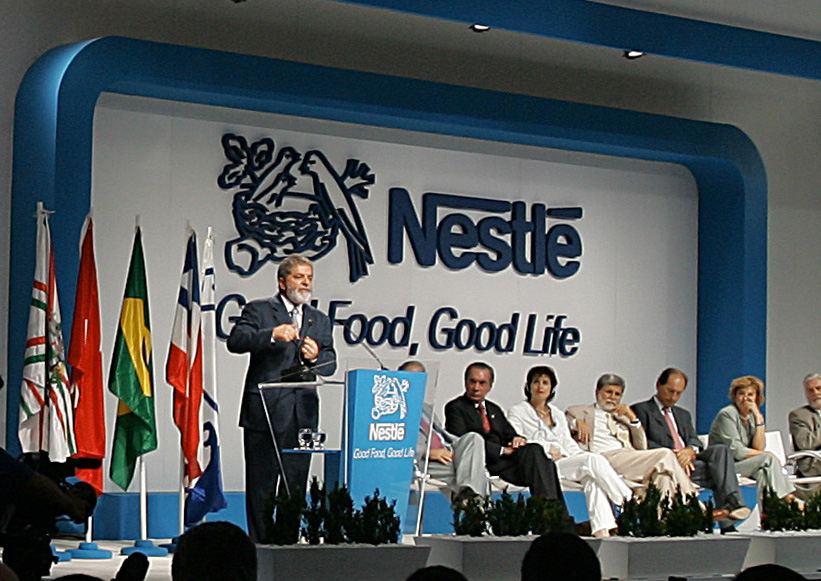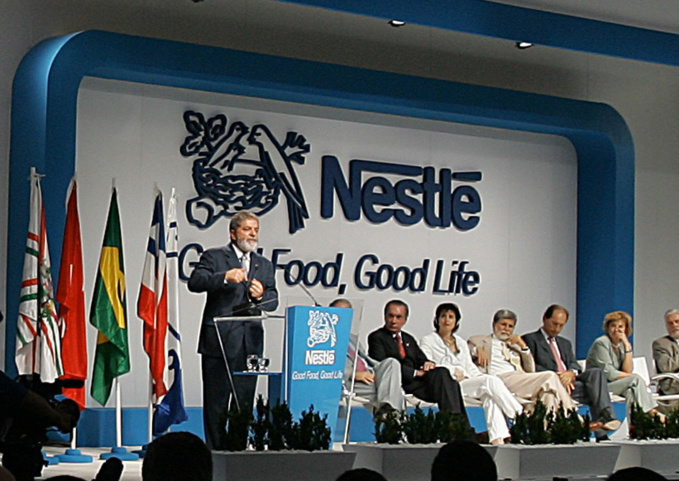The report "Recruitment Practices and Migrant Labor Conditions in Nestlé’s Thai Shrimp Supply Chain" was ordered by Nestle itself within internal audit, and prepared by the international analytical center Verite. This review was launched in December last year, after media informed about use of forced labor in enterprises, harvesting and processing marine products for Nestle in Thailand. Verite’s study confirmed these reports: the Thai enterprises, employing migrant workers, have actually used forced and child labor. There is even trafficking; the workers have to work in life-threatening and humiliating conditions. At the time, Verite noted that the revealed facts relate not only to Nestle, but to all companies that receive seafood from Thailand.
Verite centered on three companies harvesting shrimp, two ports and one fishing boat. Experts have studied the working conditions, surveyed employers and migrant workers. Inhabitants of the poorer neighboring countries, such as Myanmar and Cambodia, come into Thailand in search of work. Employers begin violations at the recruitment stage. First, intermediaries extort large sums from potential workers for employment assistance. They lure people with a supposed opportunity to earn good money, not telling anything about working conditions and requirements. People are recruited regardless of age and health, no matter they are children or old people. Employers do not bother themselves with formalizing; just give false documents to the workers. Often, workers are not warned that they have to work long hours for low wages seven days a week, without labor contracts and guarantees, and under life-threatening conditions. For example, during the fishing, shrimp nets sometimes grow very heavy. Under such a weight, workers go under the water and drown with them. According to one migrant worker from Myanmar, those workers who died on the ship during the operation are just thrown overboard without bothering with funeral.
Simultaneously with the report, Nestle presented its "Action Plan", where the company expects to solve problem of irregularities in the supply chain. In particular, the company will toughen requirements to all suppliers, as well as ship owners and captains, in regard to human rights. The workers will have an opportunity to complain about the employers and working conditions. In addition, Nestle intends to invite external auditors and appoint a single manager who will oversee the plan’s implementation. The company is going to report on the progress of implementation annually.
www.verite.org/sites/default/files/images/NestleReport-ThaiShrimp_prepared-by-Verite.pdf
Verite centered on three companies harvesting shrimp, two ports and one fishing boat. Experts have studied the working conditions, surveyed employers and migrant workers. Inhabitants of the poorer neighboring countries, such as Myanmar and Cambodia, come into Thailand in search of work. Employers begin violations at the recruitment stage. First, intermediaries extort large sums from potential workers for employment assistance. They lure people with a supposed opportunity to earn good money, not telling anything about working conditions and requirements. People are recruited regardless of age and health, no matter they are children or old people. Employers do not bother themselves with formalizing; just give false documents to the workers. Often, workers are not warned that they have to work long hours for low wages seven days a week, without labor contracts and guarantees, and under life-threatening conditions. For example, during the fishing, shrimp nets sometimes grow very heavy. Under such a weight, workers go under the water and drown with them. According to one migrant worker from Myanmar, those workers who died on the ship during the operation are just thrown overboard without bothering with funeral.
Simultaneously with the report, Nestle presented its "Action Plan", where the company expects to solve problem of irregularities in the supply chain. In particular, the company will toughen requirements to all suppliers, as well as ship owners and captains, in regard to human rights. The workers will have an opportunity to complain about the employers and working conditions. In addition, Nestle intends to invite external auditors and appoint a single manager who will oversee the plan’s implementation. The company is going to report on the progress of implementation annually.
www.verite.org/sites/default/files/images/NestleReport-ThaiShrimp_prepared-by-Verite.pdf



















